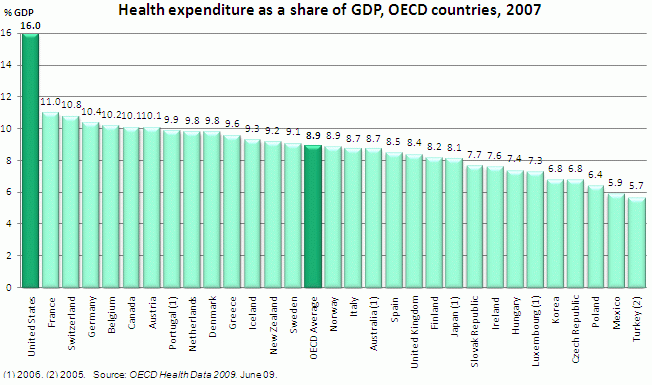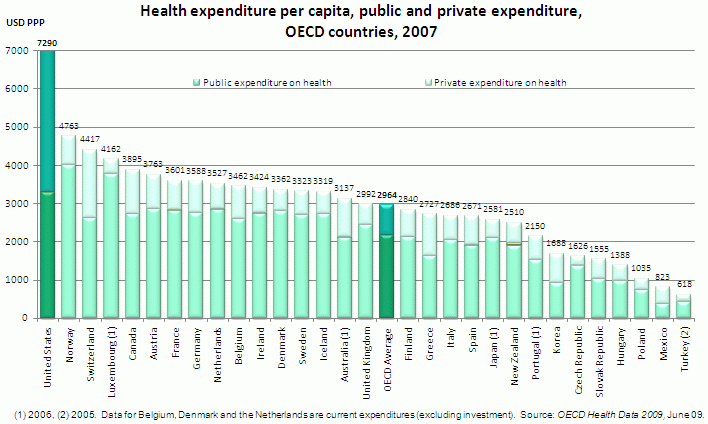AN AMERICAN TRAGEDY
43,000 American dies each year be cause they do not have access to healthcare or have healthcare and cannot afford to use it by paying premiums, co-payments and deductions. Senior citizens are taking half their medicine so they do not have to choose between their medicine and food and eating government commodities, which is high in salt and fat because of high cost of Medicare Advantage plan.
Even Saddam did not kill 43,000 Iraqis a year and we called him a monster and killed him. If this was happening in any other country we would call it inhumane. But we allow 43,000 American to die each years because we refuse to help them and we are a Christian nation and the richest nation in the world.
43,000 American dies each year be cause they do not have access to healthcare or have healthcare and cannot afford to use it by paying premiums, co-payments and deductions. Senior citizens are taking half their medicine so they do not have to choose between their medicine and food and eating government commodities, which is high in salt and fat because of high cost of Medicare Advantage plan.
Even Saddam did not kill 43,000 Iraqis a year and we called him a monster and killed him. If this was happening in any other country we would call it inhumane. But we allow 43,000 American to die each years because we refuse to help them and we are a Christian nation and the richest nation in the world.



